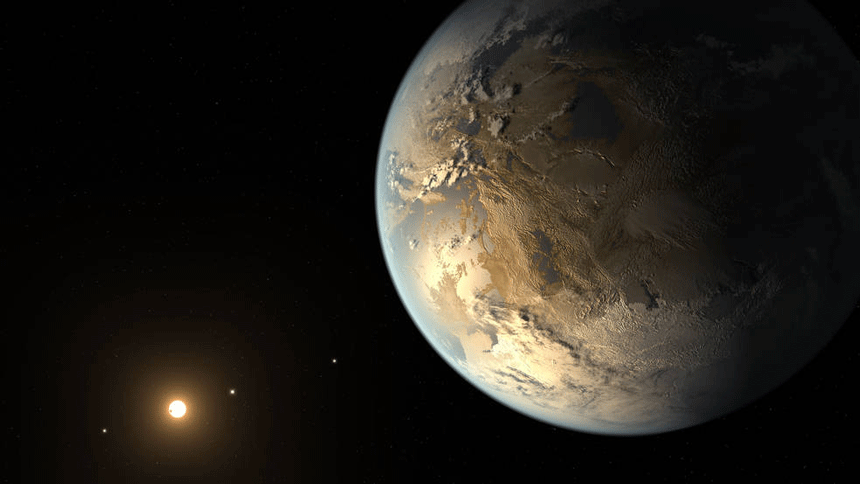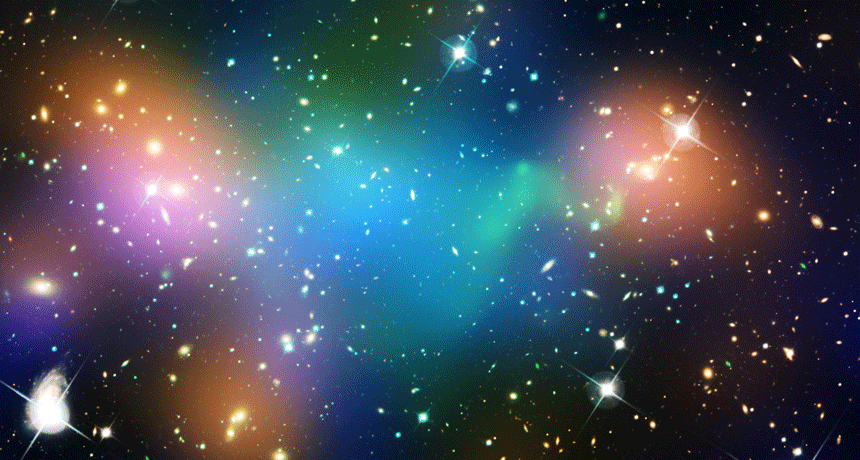Space
-
 Science & Society
Science & SocietyShould we call out to space aliens?
Scientists have been listening to space for decades, hoping to pick up alien signals. Now some have proposed we try broadcasting a welcome call.
By Ilima Loomis -
 Planets
PlanetsScientists Say: Dwarf planet
Dwarf planets are distinct from the full-size models. A little too small, they also have a lot of space stuff filling their path around the sun.
-
 Physics
PhysicsStar caught passing gas before exploding
Stars can become unstable as they near death, a new study suggests. Some may even spew gas for a year or so before they explode.
-
 Space
SpaceStudent programs computer to predict path of space trash
People are already using space as a garbage dump, which could prove dangerous to future space travelers. A teen set out to track space junk using only her home computer.
-
 Health & Medicine
Health & MedicineHibernation: Secrets of the big sleep
Mammals from bears to squirrels hibernate the winter away. Learning how they do it might one day help people mimic aspects of it to heal from brain injuries or voyage to Mars.
-
 Planets
PlanetsScientists Say: Goldilocks zone
Not too hot, not too cold. Just right. This is the region around a star where water could be a liquid, instead of a solid or gas.
-
 Archaeology
ArchaeologySpace archaeologists need your help to protect ancient treasures
Explorers who search for ancient ruins in satellite images are asking for help from the public. Volunteers can visit a new website to sign up.
By Devin Powell -
 Physics
PhysicsScientists Say: Dark matter
Most of the universe isn’t made of stuff we can see. Scientists think some of it might be made of dark matter — matter that emits no radiation.
-
 Physics
PhysicsNew solar system found to have 7 Earth-size planets
A neighboring star system hosts seven Earth-like planets. Especially surprising: Three of those planets appear to reside in a zone that could support life as we know it.
-
 Physics
PhysicsStrange X-rays point to possible ‘dark’ matter
Scientists have been looking for “dark” matter. It’s supposed to make up most of the universe — but it’s also invisible. X-rays may now point to where some of this weird stuff is.
-
 Planets
PlanetsCool Jobs: Probing Pluto
The New Horizons mission captivated the world as it flew by Pluto. Here are some of the people who made that possible.
By Ron Cowen -
 Space
SpaceRivers of stars flow between ‘clouds’ orbiting the Milky Way
Two streams of stars flow between dwarf galaxies known as the Magellanic Clouds. This new finding could give clues to the structure of our Milky Way galaxy.